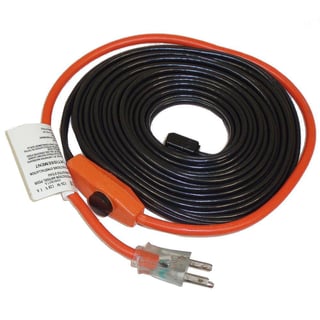I live in Maine, and it can get cold in the winter. My house has baseboard hot water heating and three heating zones (basement, first floor, and second floor). We have a mudroom/entry room that I believe was added to the house after it was originally built - it has many windows and cools easily. It also has a long heating register, which is on the first floor zone.
The thermostat for the first floor zone is well-located in a central spot. Typically, all works well. When most of the first floor is kept at a comfy 68 or so, the mudroom is probably in the mid or upper 40s.
A problem has arisen, however, with the installation of a wood stove on our first floor. The stove works well and can heat the whole house. However, when it is operating, it raises the inside temp enough so that the baseboard heat doesn't come on. The problem is that if it is sufficiently cold outside, the temperature out in the mudroom can drop into the low 30s (or potentially lower if I don't keep a careful eye on it). I obviously don't want this to happen because i don't want the pipes that supply the register in the mudroom to freeze.
What suggestions do you have that might address this problem?
Some ideas I've had are:
- Remove the baseboard heat from the mudroom (possible, though I'd like a little heat out there)
- Put the mudroom on its own zone (a bit of a costly undertaking, but perhaps the best solution)
- Put a thermostat out in the mudroom set to, say, 35 - it would be connected to the same first-floor zone as the indoor thermostat. The whole zone would kick on when either thermostat tripped. Would add more heat than wanted inside...but might be workable?
- Install some sort of shut-off valve on the pipes that go out to the mudroom so that I can manually drain those pipes and shut off water in them when I am running the stove. (I suspect this is a bad idea)
- Install some sort of standalone heater. (I am reluctant to do this - there isn't a great spot for one, and it seems like a less elegant solution in that it adds an additional complication rather than fixing the existing problem)

